Sweat & Solidarity: Taking Up Space Outdoors
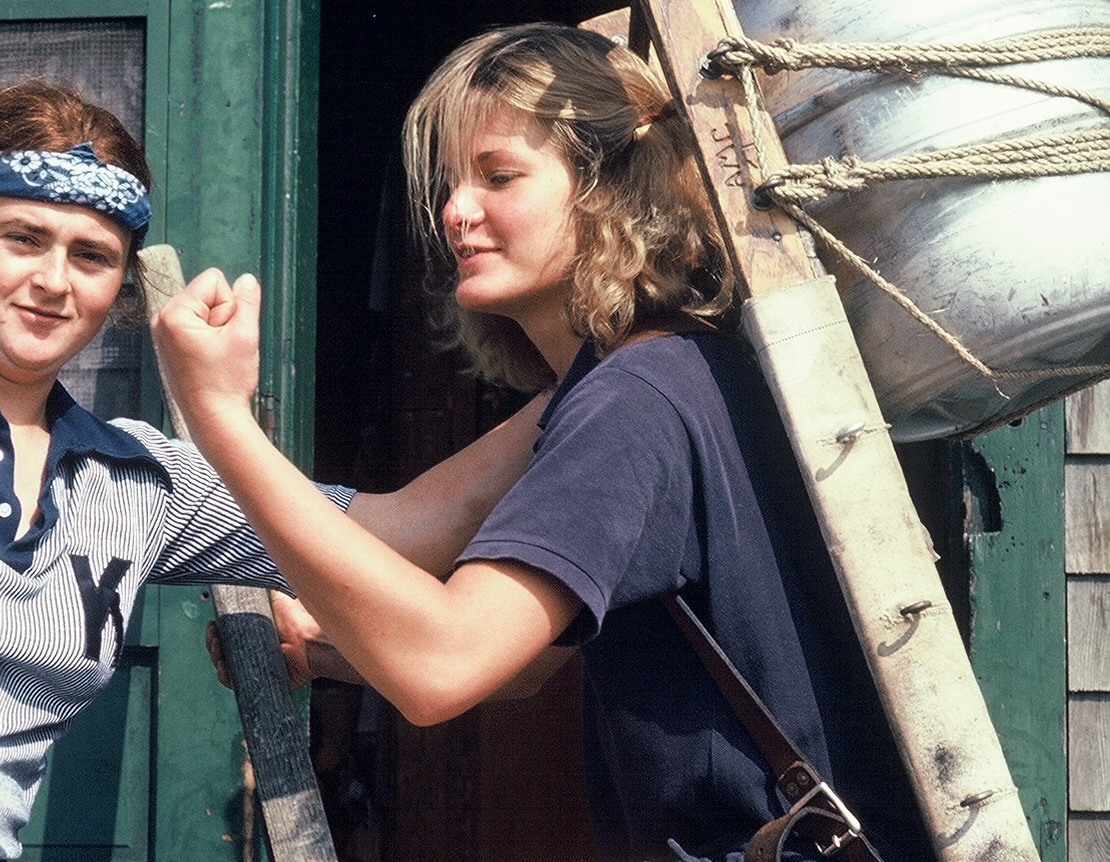
Sweat and Solidarity: Taking up Space Outdoors
As with any longstanding organization, the Appalachian Mountain Club (AMC) has developed its own coded vernacular that I use in this piece. First, the hut staff is referred to as the “croo”–no one knows why. The “Hutmaster” is the person in charge of overseeing the daily operations of the croo, and the resupply trips referred to in this piece are known as “packing”.
In high winds and freezing rain, I shrugged into the worn leather straps of my packboard, settling the weight squarely between my shoulders. Deep into August already, this had become a sacred routine: Wednesdays and Saturdays, load up the old Yukon expedition-style pack with trash and recycling, lug it laboriously to the summit of Mt. Washington, and exchange the upbound freight for a minimum of 70 pounds of fresh food. I was nineteen and working at the Appalachian Mountain Club’s Lakes of the Clouds Hut, one of eight hiker hostels strung across the far and away places of New Hampshire’s White Mountains. The deep vein of history is hard to ignore; during my first season the Hut System turned 125 years old and, in some ways, nothing has changed. The great spirit of hospitality, of providing shelter, of living and playing in some of the world’s most extreme weather, gets to a person. These were heady times.
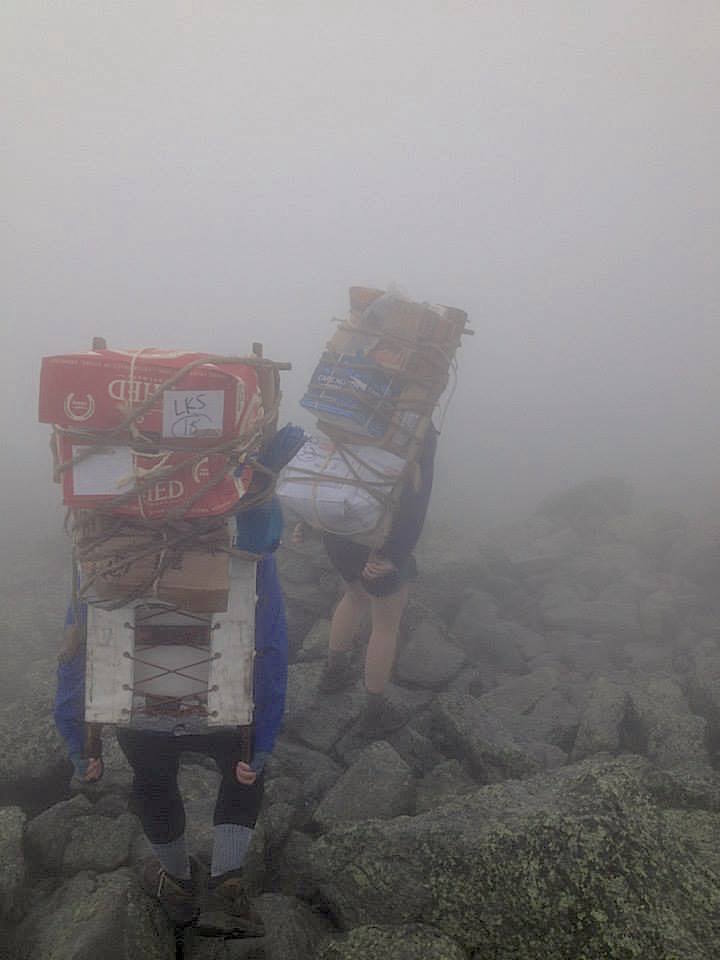
Grace Pezzella & Sarah Sanford
I studied history in college because I love the routine of narrative, and I approach the mountains in much the same way. You arrange the boxes on your pack how your Hutmaster taught you, how they learned from their Hutmaster, and so on. These lineages can be traced with a fair amount of nonacademic accuracy and, as often as not these days, follow a matriarchal trend. Women have almost always occupied a charged space in the world of packing. The huts were staffed by only men before 1973, but in the decades leading up to integration women would often don a packboard and complete a resupply to test themselves and to show solidarity with their friends on croo. In the heated atmosphere of the late 1960s, this behavior was seen as “too militant,” and even after women gained employment access, they were often criticized for packing heavy weights. Men were praised for the same behavior.
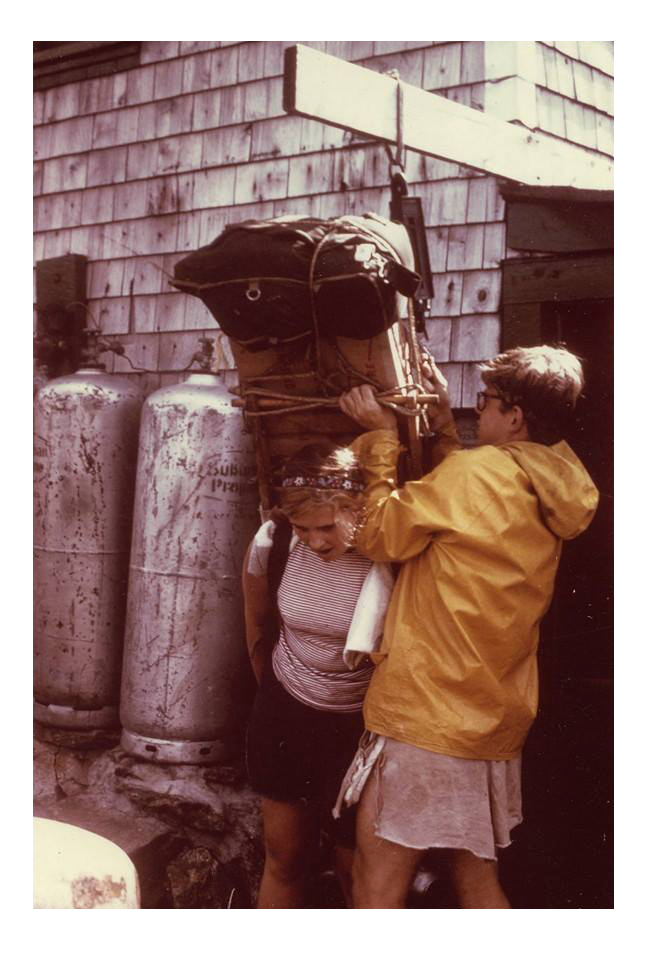
Circa 1964, Courtesy of the Old Hutmens Association
I knew little, if any, of this during my first season. I was caught up in the golden warmth of doing a hard job well, of rising early and working through, of settling in, coming into focus, finding a home. When I accepted the job, I was wracked with anxiety about packing. By the first day I slipped into the yolk of the unforgiving board, the internal conversation had not improved. “I can’t do this, I can’t do this,” I thought, all the way up to the summit. And then suddenly I had done it. Over the course of the summer I grew more comfortable, loading up more weight, loving the strong muscle and sinew stretching under my skin. I am not an athlete, and I am certainly not a dancer. I like to joke that I am the least aptly-named person on this earth, more likely to bang my hip against the edge of a table than move with anything resembling ease. When I pack, though, I love my body. I love the way my legs rise to the occasion, how my back straightens out against the frame’s dirty canvas, that I move efficiently and effectively. On these resupply trips, all of the nagging insecurities dictated by a society seeking perfection melt away, and it’s just me, moving through the mountains, twirling intoxicated on the very edge of my strength. In short, I learned to like myself.
“I can’t do this, I can’t do this,” I thought, all the way up to the summit. And then suddenly I had done it.
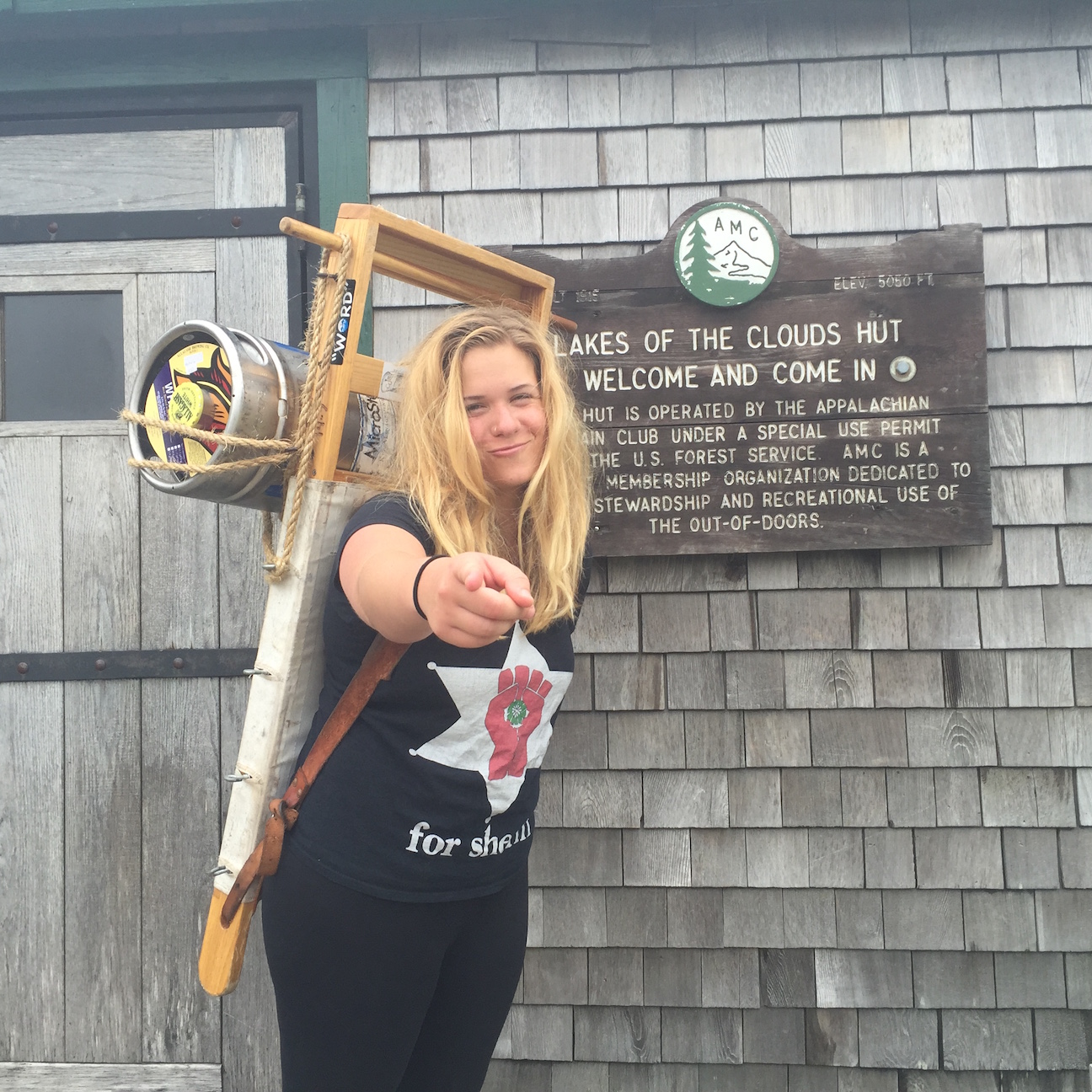
Grace in her element
So, it’s August, I’m nineteen, and I’m feeling myself. My season had passed without any major mishaps, and I was excited to share this pack day with a fellow first year girl, similarly enchanted by the magic of lugging heavy things to precipitous locales. We left the summit and concentrated on our footing; the first part of the Crawford Path is the most technical, characterized by loose rock and a steep grade. The high wind made conversation attempts pointless, so we focused on staying upright and not breaking any of the eggs in our packs. In front of us, two young men emerged from the fog and one of them managed to yell, “Why are the boys making you do this?”
We were stunned. It seems silly, but it had never occurred to us that this work looked gendered. My hiking partner shot back, “No one’s making us do anything, this is our job.” We passed the boys without further interaction and raved about them for the rest of the hike. Why go out of your way to ask a question like that, we wondered. Why assume we were unhappy?
In my seven seasons with the AMC, the croos I have worked on have, more often than not, divided up pack weights equally. It is truly a show of solidarity, an unspoken reinforcement of the teamwork required to live and work in close quarters and serve up to 100 guests per night. In my experience, gender dynamics have never come into play inside the confines of these teams. However, after that day in August 2013, I started to pay closer attention to the perception of hutwomen by hikers outside of the AMC staff community.
There were, of course, the “you go girl!”s, and “you’re a rockstar”s, and those felt good for the most part. One time a woman told me it looked like I could crack a walnut with my thighs, and I wondered why she felt comfortable making a comment about my body. There were the two former Marines carrying daypacks who insisted on racing, and when I arrived at the hut before them with 70 pounds, a standard if not light weight for many croos, they refused to talk to me. It gets more pointed, too; some hikers caught a friend of mine taking a rest on top of a particularly steep section and hollered, “gee, I hope you make it!” She replied, “I always do.”
I thought that all packers received this same treatment, but when I started asking around, I discovered that it was mostly women. To be fair, hutmen weather a fair amount of misplaced flirting from guests, but no one ever questions their right or ability to perform a job for which they were hired. I began to understand the plight of waitresses everywhere; the job is technically customer service, which severely limits the opportunities to speak truth to power. And education on the fly rarely sticks; if someone feels it’s acceptable to ask why you aren’t in the kitchen (true story), carefully citing them Ms. Magazine articles and explaining how “The Future is Female” has a zero percent chance of changing their mind. And neither does yelling—I’ve tried both.
So what will work?
First, acknowledging the rich history of women working and recreating in the White Mountains. In the 1800’s, the president of the AMC sent out a rallying cry for club members to explore and map uncharted areas of the forest. Four women were the only ones to answer the call, and we get to play in the Twin Mountain range because of them. Women were members of the AMC and smaller Randolph Mountain Club from day one, and often outnumbered men on club-led activities like winter ascents of Mt. Jefferson and the foreboding Mt. Katahdin. And when women finally broke into the fraternity of the hut system in the 70s, Hutmasters like Carolyn McManus were known for carrying two empty propane tanks at a time—that’s 200 pounds. It’s our responsibility to learn these stories and carry them with us as totems of what is—what has always been—possible.
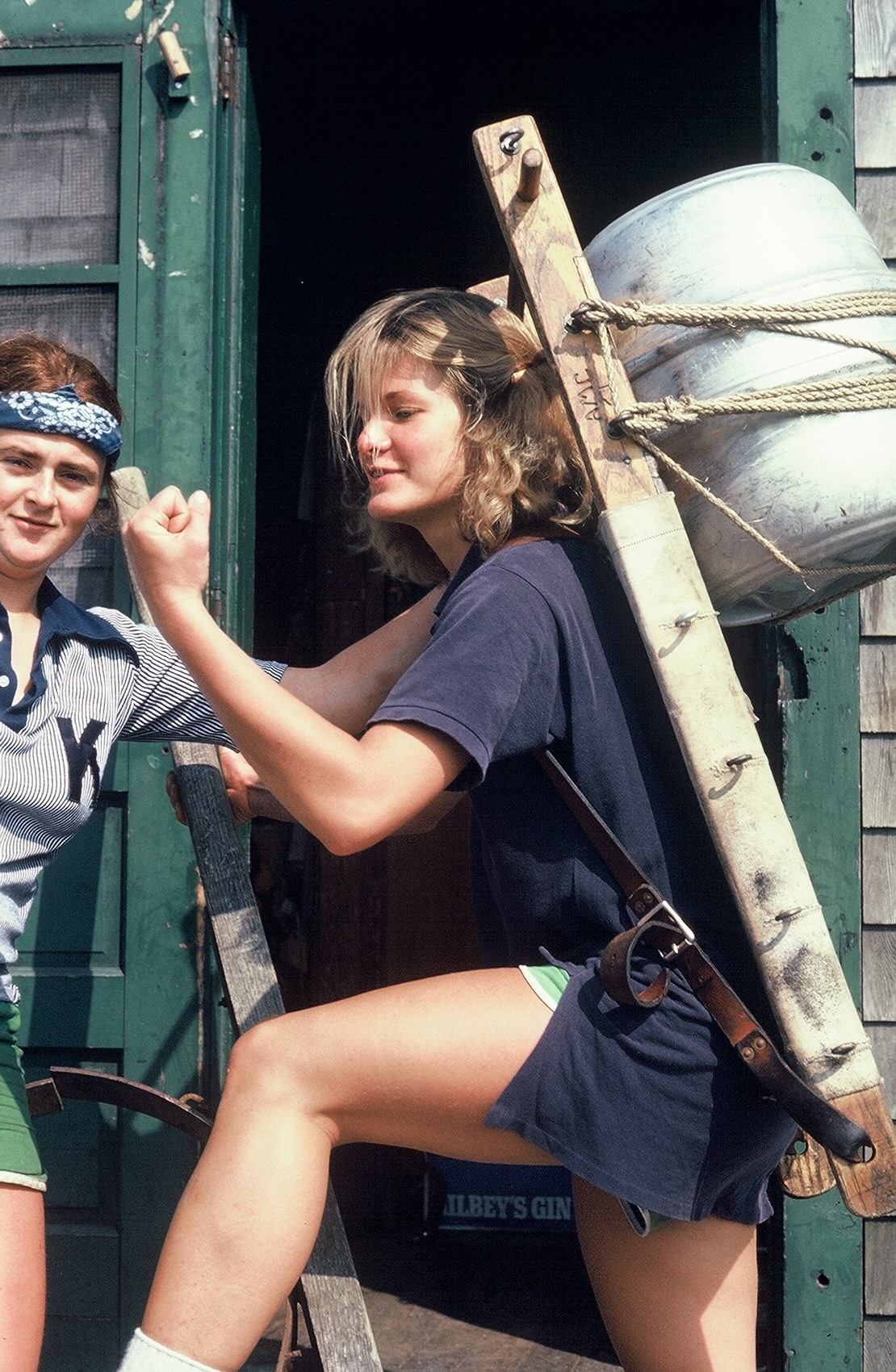
And second, we need to get outside. In bigger numbers, on solo missions or in groups with other women. Carrying our own packs. Reading maps and picking routes. Doing what is hard, and doing it well. Taking up space, existing respectfully and proudly on high peaks, in slot canyons, in those beautiful stretches of greenery decorating otherwise-urban environments. We need to form communities; we are here by the grace of women before us who fought to have a voice, to stand proud and strong in the face of external doubt, and we owe each other kindness and support in their name.
We are here by the grace of women before us who fought to have a voice, to stand proud and strong in the face of external doubt, and we owe each other kindness and support in their name.
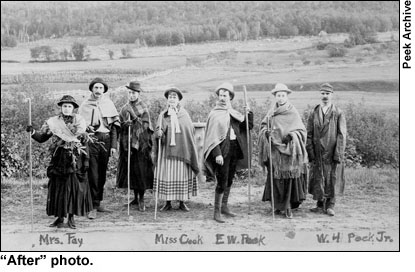
Women Pioneers in Randolph Mountain Club – Courtesy of RMC archives.
We do not have to be fearless, we do not have to be perfect. But we do have to be strong, whether that looks like running your first mile or setting out to break an unsupported speed record. Be proud of ourselves, be proud of other women. And create the narrative we want left behind–take the selfie, write the blog post, be unflinching and honest about the difficulties and small elations inherent to time in the outdoors. Tell your stories until they become extraordinary for their content instead of their protagonist. We know who we are, we know what we do. Hello world, the women are here.
Grace Pezzella is a former AMC hutmaster and yankee transplant currently living in Great Smoky Mountain National Park. When she’s not studying for the LSAT, she can be found perfecting her cast iron pizza recipe. Find Grace on Instagram.
Grace, I love your writing. I love it in croo logs, in the Tux caretaker log, and I love it here. Thanks for being an inspiration across the board – as well as a style icon for me 🙂
Jeff, thank you for always being a remarkable and supportive friend. I am lucky to have someone as articulate, empathetic, and #steezy as you in my life. See you soon my friend
Fantastic story, I can totally relate having been hut croo myself in the early 90’s. I remember vividly having two guys at Lakes one night have the audacity to ask me if the women cook and the guys pack. I simply flexed my huge muscles in my arms and said what do you think. That shut them up, and yes, it was August! I continue to love hiking in the Whites and when I am not hiking with the youngest of my five kids, I push myself to try and set new personal records. My 17 year old son and I made it from the cog lot up to the summit of Washington in 1 hour 59 minutes last October, shaving off a half hour from our past fastest time. We were doing a half Presi Traverse that day, in preparation for a full traverse this coming summer. I think it’s empowering for women, especially as we get older, to keep pushing ourselves to stay strong and healthy. I want to still be hiking when I am 90 and I am half way there now! I feel as strong, if not stronger now than I did in my 20’s. Happy Trails! See you out there.
Thanks for sharing Heather, this sounds awesome
This is one of my all time favorite pieces on She Explores! I especially love those vintage photos.
This is so lovely to read! We’ll make sure Grace gets the message 🙂
Betsy, thank you so much for your kind words!
Well done and well said, Grace.
Eric, thank you so much, and lovely to hear from you!
Tears! This is beautiful and pertinent writing. Keep up the good work.
Thank you so much Tara!
I knew nothing of this before. Very interesting piece.
You are not only strong in physical strength, you are a powerlifter in writing. Well done–keep writing and growing! My husband often reminds me that as a child, I would carry 50-pound bags of horse feed and think nothing of it. His point is that so much of strength comes from your mind, and your drive, not just your body. You clearly are strong in both places.
Susan! Thank you so much 🙂
Thank you so much for the feedback, hope to see you around the Whites this summer!